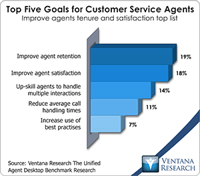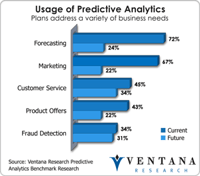On its website Panviva describes itself as providing “business process guidance,” which is a phrase I was notfamiliar with. As I searched the site, I found messages such as”it’s all about customer experience,” “the right information for the right person at the right time” and “navigating complexity.” All of these describe issues contact center agents face on a daily basis, and I concluded that Panviva competes in a space I track. My benchmark research into the agent desktop and its impact on...
Read More
Topics:
Customer Experience,
Mobile Apps,
Self-service,
Operational Performance,
Analytics,
Cloud Computing,
Collaboration,
Customer & Contact Center,
Customer Service,
Business Process Management,
Call Center,
Contact Center
Two key themes that emerged from Larry Ellison’s Sunday night keynote at this year’s Oracle OpenWorld were faster processing speed and cheaper storage. An underlying purpose to these themes was to assert the importance of Oracle’s strategic vertical integration of hardware and software with the acquisitions of Sun. I try to view technology keynotes like this from the perspective of a practical business user. Advancements such of these are important because enhancing the performance and...
Read More
Topics:
Big Data,
Customer Experience,
executive,
IT Performance,
Business Analytics,
Business Performance,
Data Management,
Financial Performance,
In-Memory Computing,
Information Management,
Business Process Management,
Data,
FPM
Midsize businesses “pay” for their use of entry-level accounting systems by not having the essential information they need readily available and by using up valuable time that could be better spent generating business, finding issues or responding to opportunities sooner or simply enhancing the efficiency of the organization. Nevertheless, the transition from an entry-level accounting package such as QuickBooks to an on-premises system can be daunting for companies whose entry-level software no...
Read More
Topics:
Sales Performance,
Customer Experience,
ERP,
Office of Finance,
end-to-end,
finance cloud,
Business Performance,
Cloud Computing,
Financial Performance,
Business Process Management,
CFO,
finance,
accounting software,
business process execution,
financial systems,
FPM
At its Business Analytics Analyst Summit (Twitter: #IBMBAS12) this week, IBM unveiled its new release of analytics software for decision management. Over the last 25 years decision support systems have transformed into decision management, in which analytics, rules and optimization methods help organizations use information to guide optimal outcomes. IBM has experience and technology in these areas, most of it acquired, to apply to specific organizational needs in vertical industries. In...
Read More
Topics:
Big Data,
Predictive Analytics,
Sales Performance,
Supply Chain Performance,
Operational Performance,
Business Analytics,
Business Collaboration,
Business Intelligence,
Business Performance,
Cloud Computing,
Customer & Contact Center,
Financial Performance,
IBM,
Workforce Performance,
Business Process Management,
Decision Management
ERP systems not only collect information about transactions, they also automate processes. The latter includes managing the handoffs between roles and enabling electronic document creation and management associated with that. Indeed, it was the promise of improving process management and process execution that spurred companies to adopt ERP in the 1990s.
Read More
Topics:
Customer Experience,
ERP,
Office of Finance,
end-to-end,
Operational Performance,
Business Performance,
Financial Performance,
Business Process Management,
CFO,
business process execution










